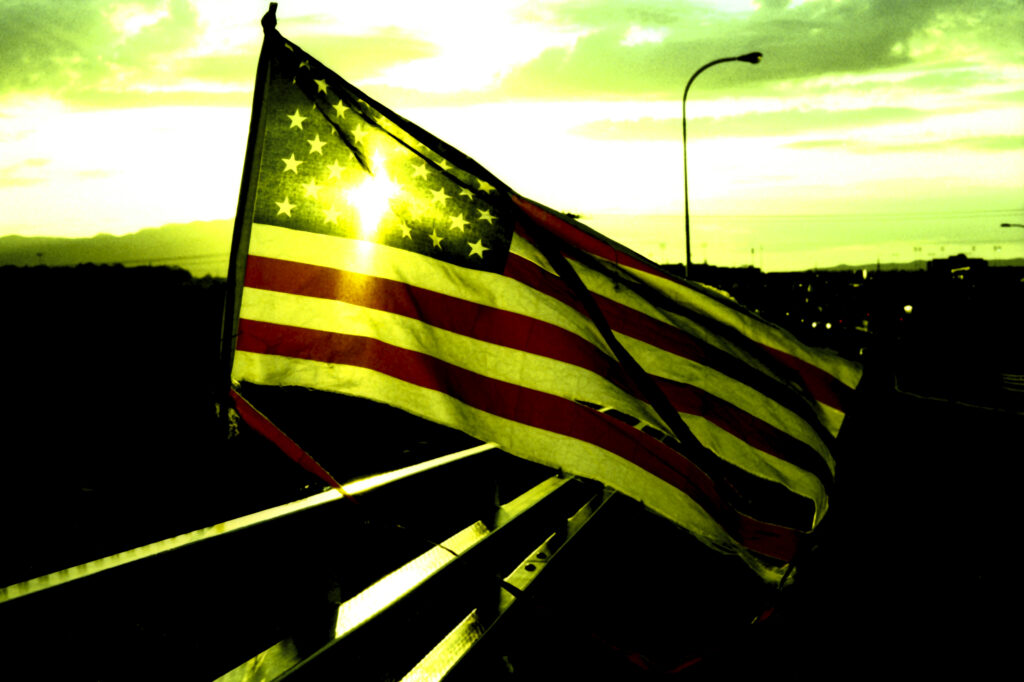First published on Wonkette, Facebook, and The Art of Tetman Callis, March 29, 2023. Copyright 2023 by Tetman Callis.

Corporal Henry Callis, younger brother to my father, was on a troopship steaming to Japan in the summer of 1950 when the Korean War broke out. He was on his way with several hundred other troops to join the 29th Regimental Combat Team on Okinawa and be part of the post-World-War-Two American Army of Occupation there. The regiment was understrength and had only two battalions, instead of the three called for by its full complement. Nobody had expected war in Korea. If war came, everybody expected it to be nuclear and against the Soviet Union.
Henry and the others on the troopship arrived at Okinawa one morning and learned their mission had changed. They were issued combat gear and company assignments. By sundown they were aboard another troopship along with the rest of the 29th and were on their way to the port of Pusan on the bottom-right corner of the Korean peninsula. A day later they arrived. They disembarked and headed up to the front line, the location of which no one was certain. The North Koreans had launched a devastating surprise attack to start the war against South Korea a few weeks earlier, and were still on the march. What few American troops were available in Japan had been rushed to South Korea to help the shattered South Korean army. They were being overwhelmed. The North Korean army was large and well-equipped, well-trained and possessed of many veterans of the Chinese Civil War, which had ended the previous autumn. The situation was fluid and becoming desperate.
The soldiers of the 29th Regimental Combat Team were told they were going to fight a couple hundred communist guerrillas near a town called Hadong-ri. They headed that way by train and then by truck, and then by foot. Their rifles and machine guns were all new. The machine guns were still packed away in their protective shipping grease when the regiment got to Pusan. They hadn’t been test-fired and their sights hadn’t been aligned. And not all the equipment had been distributed. Not all the regiment’s doctors had medical tools and supplies.
The men—boys almost, like Henry, who had himself just turned twenty that spring—were very confident and very green. Very few of them, maybe about one out of every one hundred, were Second World War combat veterans. These were generally the sergeants and not the commissioned officers.
The regiment drew near to Hadong-ri and deployed along a ridge with one battalion on one side of the road and the other on the other. They saw a few soldiers moving around in the valley in front of them. They weren’t sure if these were stray South Korean soldiers, but they thought it likely that’s what they were. They had been told they would be mopping up guerrillas and they didn’t expect to see uniformed soldiers in front of them. The regiment’s commander and his staff got out of their jeeps and stood in the road at the top of the ridge and tried to figure out what was going on. They stood in a clump. Binoculars hung from straps around their necks and they held maps in their hands. Mortar and recoilless rifle fire slammed into the ridge. The first shots killed the regimental commander and his staff. The regiment was not facing a group of ragged irregulars they outnumbered five to one. They were up against a crack North Korean division that outnumbered them ten to one.
It was not long before the 29th Regimental Combat Team was shattered and routed. Its fragments were driven back down off the ridge and through the rice paddies behind it. Hundreds of American soldiers were killed or went missing. Henry was one of the missing. The soldiers were so new to their companies that many of them didn’t know each others’ names. There was no one who knew Henry Callis who survived the battle and could say what had happened to him. He was as gone as though he had vanished from the face of the earth, lifted up bodily in the rapture of war.